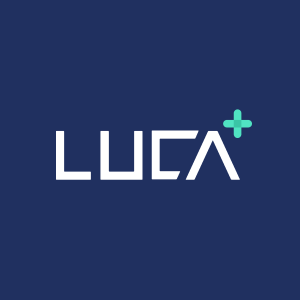
Fraudulent Invoicing 101: How to avoid it and what to do if you suspect it
Payment fraud has just spiked to a new high. A staggering 82% of companies have confirmed they were affected last year, according to the 2019 AFP Payments Fraud and Control Survey. In our last article, we particularly focused on the escalating issue of invoice fraud, which has resulted in a $1,403,328 loss in Australia, as of July 2019. Here we will focus on identifying fraud and adopting security standards in your business.
The Red Flags of Fraudulent Invoices
False invoices may appear legitimate and similar to real ones. However, many will also contain errors and warning signs that will clearly indicate that they are scams. Therefore, whilst going through and approving your invoices, stay cautious of these warning signs:
- Company name on the invoice is not a registered company
- No physical address is listed (email alone is not legitimate enough)
- False contact information such as phone number or PO box
- Unprofessional grammar & spelling
- Invoiced goods or services are not located in inventory
- No receiving report for invoiced goods or services
- Prices, amounts & item descriptions do not match the inventory records
- The description listed for the invoiced goods and services are brief and un-detailed
- Numbers on the invoice are rounded (it is incredibly unlikely you will ever get a rounded number invoice)
- These red flags were found in most fraud cases investigated by Deloitte. Note that fraudulent invoices can be created by a company’s own employees, not just external actors.
Avoiding Fraudulent Invoices
1) Impose more stringent policies concerning the invoicing process
We explained in Invoice Fraud on the Rise that inadequate internal controls are a major failure that leads to financial exposure. False invoices can often succeed in businesses where invoice authorization processes are poor and minimal. Therefore, businesses should strive to have stricter protocols and ensuring that their employees are conscious of the proliferation of fraudulent invoices.
The Australian Competition and Consumer Commission (ACCC) has suggested some effective policies employers could enforce. These include confirming changes to a vendor’s bank account, verifying invoices and payments by contacting suppliers and requiring further documentation for invoices. Never provide authorization for payments from unknown numbers or emails. Moreover, implementing a secure cross-check system by delegating a second team of staff to double-check payments can significantly reduce the risk of unwanted errors and theft. To maximize the efficiency of this arrangement, these teams should be limited in numbers, be well-informed of the firm’s expenses and have access to documents regarding the business’ purchases.
2) Exercise basic safety precautions
Businesses should also be vigilant and regularly monitor bank accounts for suspicious activity. Ensure that written records of authorizations for invoices are kept as evidence for reference. The Credit Protection Association recommends to never leave invoices unattended on your desk, screen or in public view to reduce risk of employees internally committing fraudulent invoicing.
Regularly check https://www.scamwatch.gov.au/ (run by the ACCC where news of scams are updated) to stay informed on the scams that are transpiring.
3) Automate your invoicing system
This is one of the most effective strategies to avoid invoice fraud. Businesses that organize their invoices manually are particularly vulnerable to false, duplicate and inflated invoices due to the arduous and time-consuming nature of the process.
LUCA+ is a reliable solution that puts business owners’ and accountants’ minds at ease by providing an e-invoicing platform that eliminates the outdated method of manual transaction entry. Powered by blockchain technology, LUCA+ certifies that the invoices users receive are legitimate and accurate, thus eliminating the occurrence of fraud. The platform also tracks all transactions which have occurred in real-time, making the process of invoicing much simpler and quicker to monitor. LUCA+ can be seamlessly integrated with your existing accounting solutions and is free to use. Sign up here to revolutionize the way you invoice.
‘I think I suspect fraud in my business…now what?’
If invoice fraud is suspected in your company, it is encouraged to report the scam to the ACCC. It is also worth noting that if you receive a demand for payment for goods you did not order is received, you may have rights to dispute the payment.
If money has been sent or banking details have been shared with a scammer, make sure your financial institution is contacted immediately. There is a possibility that they may be able to stop a transaction or close your account. If your credit card was billed fraudulently, your credit card provider could potentially reverse the transaction by performing a chargeback.






Recent Comments